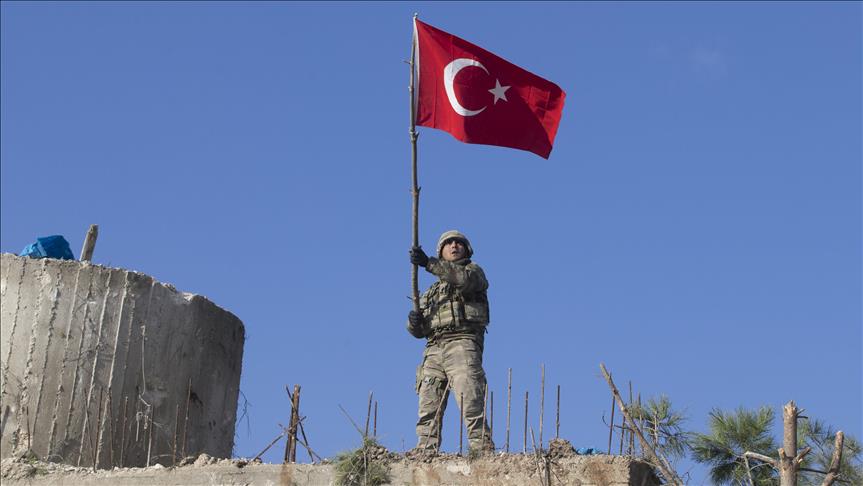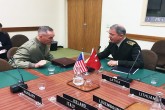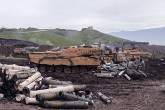Astriking headline, “America Alone,” on the cover of the latest issue of Time illuminated the sad state of U.S. foreign policy in the international system. Truly, the arrogant communication and endless gaffes from President Donald Trump, the heavy ideological rhetoric consisting of a mixture of extreme political realism and Evangelical-messianic messages, exclusionary attitudes adopted toward long-term allies and emerging powers alike are rapidly pushing the U.S. into global isolation. As serious internal coordination problems continually surface in the U.S. government and foreign policy formulation and implementation are almost totally ascribed to the Pentagon, it is hardly surprising to see that both old and new allies are alienated.
The post-hegemonic approach in the U.S. to international security entails a fluid system of pragmatic and issue-based bilateral alliances, frequently shifting and unreliable regional engagements, increasingly toughening politico-economic competition, destabilization of critical geostrategic areas and utilization of paramilitary or terrorist organizations for proxy wars if necessary. This foreign policy posture that started to gain ground in the last years of former President Barack Obama’s final term and institutionalized under Trump constitutes a grave danger to the preservation of sustainable global peace and stability. It does not require tremendous expertise to notice that the U.S. is actively increasing tensions in a multiplicity of critical conflict zones such as Syria, Palestine, the Gulf, elsewhere in the Middle East, the Korean Peninsula and the South China Sea in the Asia-Pacific. Trump’s basic instincts as an aggressive businessman making big gains in crisis situations seem to be reflected in his role as the president managing U.S. foreign policy, yet triggering crises around the world creates a hefty social, moral and humanitarian responsibility, as well.
The war in Syria is a clear example demonstrating the collapse of the global role ascribed to the U.S. as a major stabilizing force. Having endured many years of dealing with Washington’s twists and turns in its extensive fight against various forms of terrorism, Ankara’s patience has finally run out. Indecisiveness and frequent U-turns by the White House concerning policy options to be followed under Obama evolved into active partnership with the PKK-affiliated People’s Protection Units (YPG) in Syria. Despite numerous warnings from Ankara, the U.S. administration continued to provide weapons, ammunition, training and cover for the YPG, whose militants were occasionally crossing the border to conduct terrorist attacks in Turkey. Having tried all sorts of political and diplomatic initiatives to persuade Washington to stop supporting the YPG against a major NATO ally, Ankara finally decided to go it alone. Recent news concerning the formation of a 30,000-strong border control force from the ranks of the YPG with U.S. support were also influential in triggering President Recep Tayyip Erdoğan’s decision to immediately start Olive Branch Operation in Afrin, Syria.
As the name suggests, this operation aims to open up a peace corridor in northern Syria by blocking YPG terrorists and is fully justified by international law as self-defense and counterterrorism. The success of the previous Operation Euphrates Shield in providing a safe zone and humanitarian assistance corridor for the return of Syrian refugees to their homes is already known. Yet, as far as Turkish-U.S. relations and the declining hegemonic position of the U.S. in the international system is concerned, the Afrin operation carries a bigger symbolic meaning. Despite being a NATO ally, Turkey, with the strong persona Erdoğan, openly declares that to ensure its national security and stability it does not rely on the partnership of the U.S. and acts in tandem with Russia. Turkey normatively challenges the unprincipled and overly pragmatic decision of the U.S. to support a clear terrorist group in the YPG to advance its short-term interests in the Syrian war. While doing that, Turkey took a calculated risk of losing some of the comforts that a close U.S. and NATO alliance might bring with respect to its regional and international standing. However, the early reactions of the international community to Operation Olive Branch indicate that there is ample international support. Ankara plays in accordance with the rationale of the new era, assuming bilateral alliances based on strategic themes, issues and circumstances rather than clear-cut predictable positions. As such, it forces the U.S. to readjust its position concerning Turkey’s security prerogatives and the future configuration of Syria.
[Daily Sabah, 26 January 2018]
In this article
- Opinion
- 2018
- Afrin
- China
- Counterterrorism
- Daily Sabah
- Donald Trump
- East of the Euphrates
- gulf
- Humanitarian Assistance
- International Law
- Kurdistan Workers' Party Terrorist Organization (PKK)
- Middle East
- NATO
- NATO Ally
- Operation Euphrates Shield
- Palestine
- Peace Corridor
- People's Protection Units (YPG)
- PKK - YPG - SDF - PYD - YPJ - SDG - HBDH - HPG - KCK - PJAK - TAK - YBŞ
- Proxy War
- Recep Tayyip Erdoğan
- Russia
- Safe Zone
- Syria
- Syrian Civil War
- Syrian Conflict
- Syrian Crisis
- Syrian Refugees
- Terror
- Terrorism
- The President of the Republic of Türkiye
- Turkish Foreign Policy
- Turkish President
- Turkish-American Relations
- Türkiye-US Relations
- Türkiye's Foreign Policy
- Türkiye’s Operation Olive Branch
- United States (US)
- US Foreign Policy


